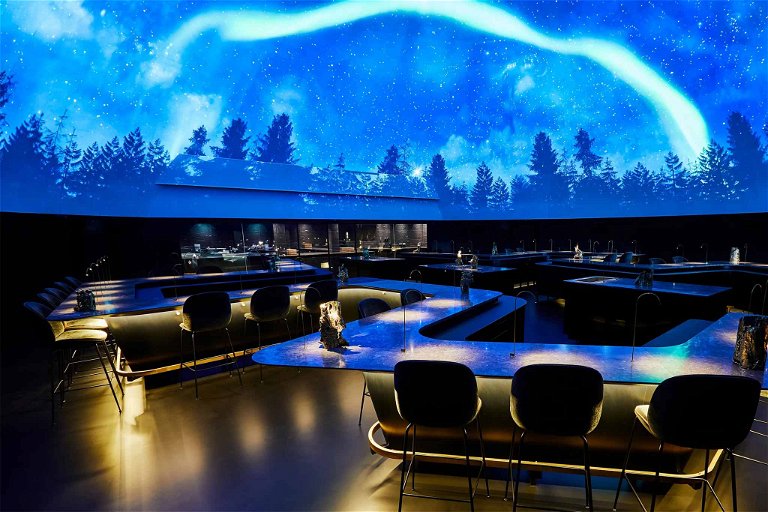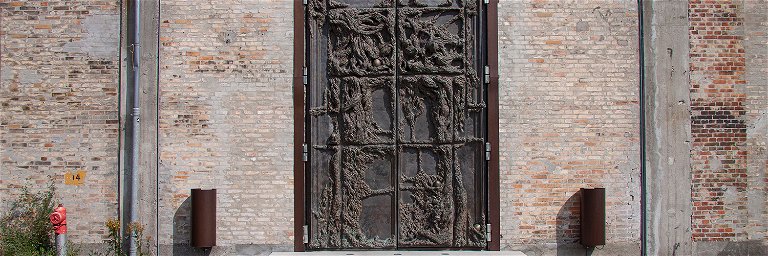"Alchemist" and "Mota": There is something fine in the state of Denmark
Of Nordic sophistication and the culinary Mecca of a country without mountains: Denmark today has far more to offer gastronomically than just the legendary three-star restaurant "Noma".
In the "Alchemist" you need not only patience, but also a well-filled wallet. With a menu price of around 658 euros and a waiting list of 10,000 guests for just 52 seats, the team at the Copenhagen restaurant has cooked its way up to become one of nine gourmet palaces in the country. The "Alchemist" has two stars and was ranked fifth in the latest "World's 50 Best Restaurants".
The past decade of the culinary arts
Denmark today has much more to offer gastronomically than just the legendary three-star restaurant "Noma", which cooked its way to the top of the world's best restaurants with its Japanese-inspired Nordic cuisine and thus played a major role in shaping the past decade of culinary art. The only thing is that "Noma" will close in 2024 and be transformed into a culinary laboratory - Falstaff reported - and "Geranium" will probably remain the only three-star restaurant. However, with the rich offer and the level of cooking, it is not unlikely that the Michelin Guide will again hail stars next year.
Of ships and butterfly wings
The "Alchemist" is located in a hidden part of a former industrial area of the Danish capital. Where ships were once built, culinary creations ranging from butterfly wings to chicken legs are now being created. Behind a massive bronze door, an almost mystical atmosphere awaits guests with immersive music, lighting effects and contemporary dance.
Holistic experience instead of traditional fine dining
As 32-year-old chef Rasmus Munk explains, "The goal is to change the world through gastronomy and create an immersive experience by bringing different artistic fields into the culinary world." The "Alchemist" promises no traditional courses such as appetizer, main course and dessert, but a "holistic experience with 50 different "impressions".
Amuse bouches are served in the first room, but most of the meal takes place under a dome, where colorful footage of plastic-polluted underwater landscapes alternates with disturbing news sequences on screens.
A look inside Rasmus Munk's artistic head: an eyeball formed from dried cod broth with a pupil made of caviar - Munk likes it best when people start discussing and the natural connection between food and the experience itself starts to bear fruit.

The "Mota
In mid-June, five new restaurants in Denmark were awarded one Michelin star and another was crowned with two stars. Claus Henriksen, who worked at "Noma" for two years, describes this time as fantastic. He recently opened his own restaurant, Mota, a hundred kilometers from Copenhagen in a former psychiatric hospital in the countryside. The "Mota" places great emphasis on local products. Henriksen finds mushrooms, asparagus, seaweed, hake and much more directly in the area. Even the wine list features local drops, as climate change has now even made viticulture possible in Denmark.
"Twenty years ago, we were cooking mostly classic French and Italian. We had forgotten our own products," recalls Chef Henriksen. The focus on local Nordic flavors came from René Redzepi, the "Noma" founder.
Wave-making haute cuisine in the high north
The trend of Denmark's wave-making haute cuisine is very popular. In a survey, nearly 40 percent of tourists said they had traveled to Copenhagen for its gastronomic offerings. The days of boiled potatoes, pork chops and gravy are long gone in Denmark. Instead, restaurants now offer a variety of sophisticated dishes garnished with berries and edible flowers instead of greasy sauce.
With its rich culinary diversity based on local products and Nordic flavors, Denmark has established itself as one of the world's leading gastronomic destinations in recent years. The "Alchemist" and other first-class restaurants continue to set new standards and steadily expand the boundaries of culinary creativity. A trip to Copenhagen promises a culinary expedition where guests can discover firsthand the new avant-garde era of culinary arts that has been ushered in, with a return to tradition. A contradiction in terms? Travel to Copenhagen and see for yourself.
Never miss out!
Sign up now for our newsletter
